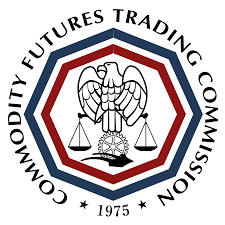Two people intimately involved in helping to craft the legislation, say that Dodd/Frank has functioned well.
Dawn Stump and Dan Berkovitz are both now Commissioners on the Commodity Futures Trading Commission (CFTC).
They recently joined the Chief Executive Officer of the Futures Industry Association (FIA) Walt Lukken on the FIA podcast, FIA Speaks.
They were on the podcast to reflect on the ten-year anniversary of the passage of Dodd/Frank, which passed in July 2010.
At the time of its passage, both worked as staffers on Capitol Hill.
Stump said she worked the lead derivatives staffer for the Republicans on the Senate Agriculture Committee, where much of the derivatives portion of the bill was hammered out.

Berkovitz was the General Counsel at the CFTC during the deliberations of Dodd/Frank.
Ten years later, both said Dodd/Frank has functioned well, at least in the derivative market where both Stump and Berkovitz work.
“I am happy to admit that even in those areas of Dodd/Frank that I harbored some skepticism in 2010, it’s largely been replaced with an appreciation for how well many of the derivatives provisions have been implemented and embraced and applied. I think this is an outcome I actually don’t think could have been possible without tremendous coordination between the regulator- in this case CFTC- and the marketplace,” Stump noted.
Berkovitz agreed.
“I would agree with what Commissioner Stump just said,” he added, “I think it’s held up remarkably well.”
He noted that former Secretary of the Treasury said the key to the financial system is confidence.

Berkovitz continued, “When you have a potential collapse, they’re due to a lack of confidence in the system. I think Dodd/Frank has gone a long way to building up confidence in the system.”
Berkovitz and Stump also expanded on their roles in crafting Dodd/Frank.
“In May of 2009, then Chairman Gary Gansler asked me to come over and join the CFTC as general counsel. I began that job in June of 2009, and we immediately began working on the administration’s proposal to Congress which Congress worked into the Dodd/Frank Act,” Berkovitz.
Title VII of Dodd/Frank dealt with swaps and it is this portion of the bill that Berkovitz and Stump focused on.
Stump recalled how bipartisanship was difficult to achieve.
“I believe that the Title VII product that the House produced was developed in a bi-partisan way, which is very common to the AG committee’s approach. Unfortunately, the Senate was unable to arrive at such a conclusion which was personally disappointing for me because, after two years of negotiating a bipartisan derivatives title that was the product of some very difficult compromises between the Republicans and the Democrats on the Senate Agriculture Committee, it was determined that each camp should go their own way,” Stump said.
In the end, the bill was largely supported by Democrats and largely opposed by Republicans; Stump offered her opinion on why.
“In this case, I believe that it was largely the result of the fact that while the derivatives title was an important component of the overall legislation, it was just one piece of the puzzle, and while the team I worked on was able to add value to the piece of the package that we were working on, which is Title VII.” She said on the podcast. “The reality is that many Republicans were gonna find it difficult to support the bigger package due to the manner in which it was expanding the government and various things that were completely unrelated to the derivatives title.









